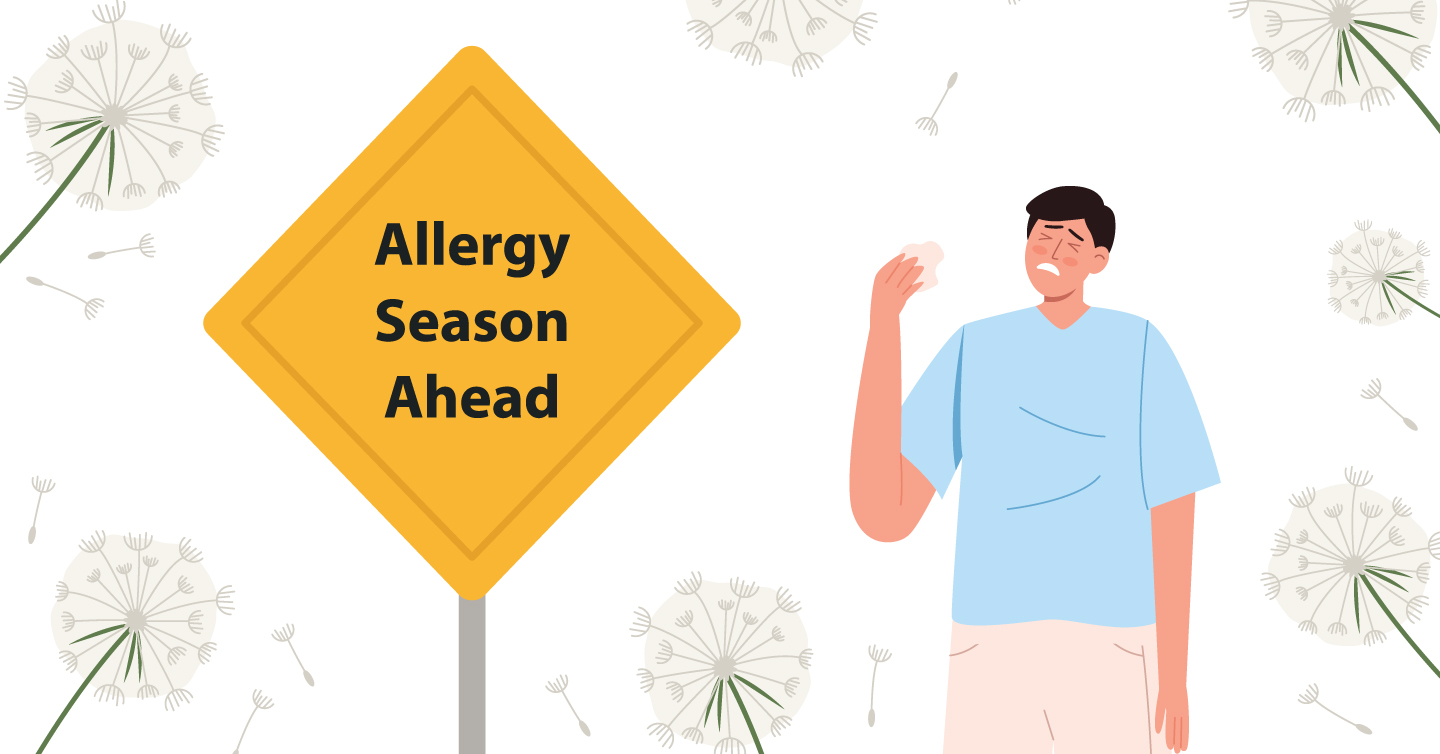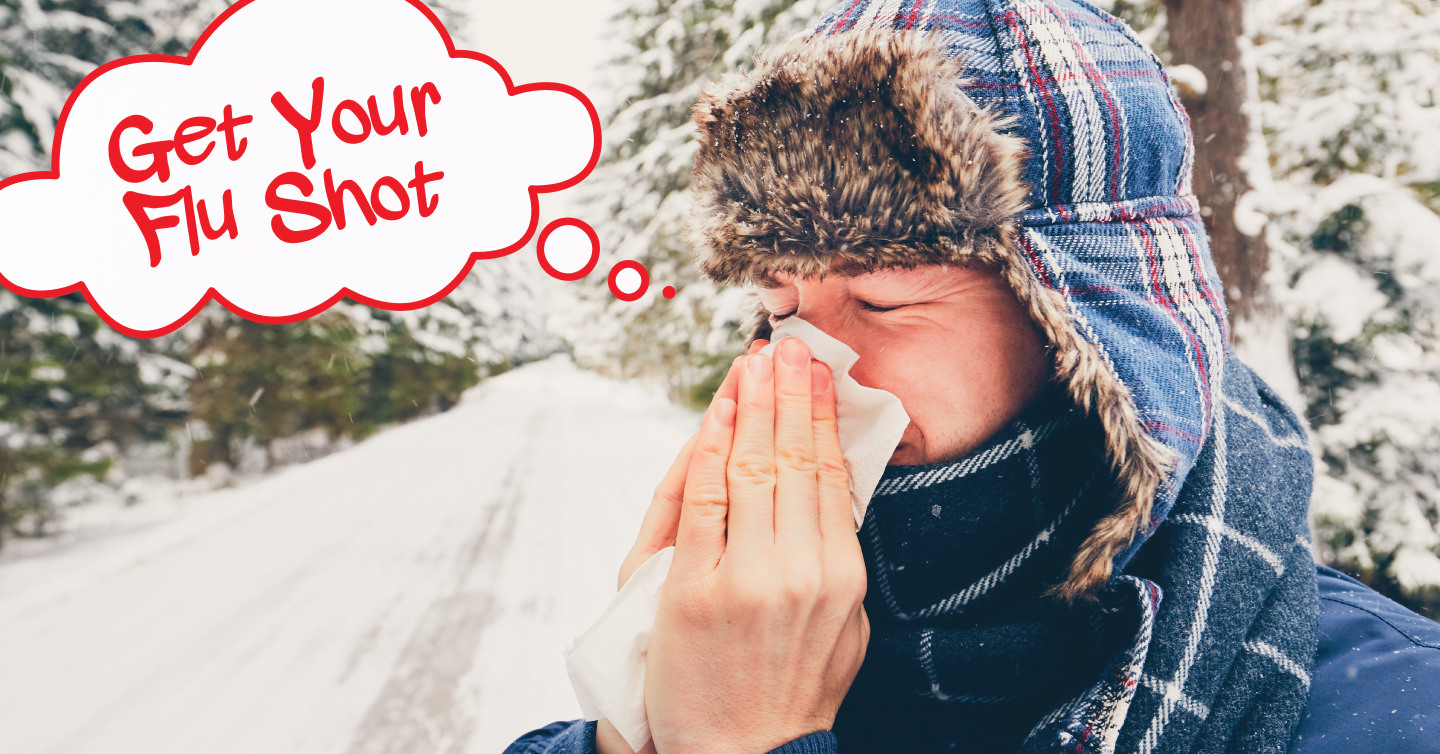What Allergies Are High Right Now in Wisconsin?

By Jill K, MSN, RN, quality care coordinator at Network Health
4/21/2025
Did you know about one-quarter of adults and nearly 1 in 5 children have a seasonal allergy? Are your allergies acting up right now? Or are you trying to get ahead of allergy season in Wisconsin? Then it’s helpful to have some background on when allergy season is, how allergens fluctuate throughout the year and through various weather patterns, and what you can do to help yourself be prepared.
After all, we understand how it is. When your nose is runny, your eyes are itching and you can’t stop sneezing, it can be like having a bad cold that just won’t end. It can cause immense discomfort and be a distraction from your daily life. That’s why we’re here to help.
When is Allergy Season in Wisconsin?
Even if you don’t enjoy winter, there’s one good thing about it for those who have seasonal allergies… Winter in Wisconsin means getting an extended break from outdoor allergens that might not exist in much warmer climates. That’s why if you spend time somewhere warm in the winter, like Florida or Arizona, you might notice your allergies acting up in a way that they don’t during a Wisconsin winter.
Outdoor allergy season in Wisconsin generally stretches from March through October, depending on how quickly winter and spring set in and which part of the state you live in. Notice that we specified “outdoor” allergy season… There are plenty of allergens inside your home that might cause the same symptoms as those outside, such as pet dander, mold or dust mites. Of course, these sorts of allergens can be present throughout the winter and year-round.
“What is Causing My Allergies Right Now?”
If you are allergic to something, it means that your immune system overreacts to the substance (allergen) when you inhale, touch, or eat it. Your immune system is what your body uses to defend itself. For example, if you are allergic to pollen, your immune system identifies pollen as an intruder in your body and overreacts by releasing substances such as histamine into your body. This allergic reaction can cause symptoms that include itchy or runny nose, itchy or red eyes, scratchy throat and sneezing.
If you’ve never had an allergy test, you might know you have seasonal allergies but not know exactly what it is you’re allergic to. Allergy testing is a precise way to tell what is causing your allergy symptoms. If you have had an allergy test, you might know what you’re most allergic to but not know at what time of year those allergens are at their peak. We have put this guide together to make things easier to navigate.
Wisconsin’s Spring Allergies
In early spring, the biggest allergen you’ll face is tree pollen, especially from birch, oak, maple, pine, ash and cottonwood trees. The flowers may not be blooming yet, but by late March/early April trees will already be reacting to the warmer temperatures. In late spring, May-June, grass pollen becomes a more significant allergen.
Most Prevalent Allergens
- Tree pollen
- Mold spores (snow melt creates damp conditions)
Tips to Reduce Exposure
- Keep your windows closed, especially early in the morning when pollen counts peak.
- Limit outdoor activities during days with high pollen counts.
- Shower and change clothes after spending time outside.
- Use an air purifier indoors.
- Take antihistamines before you get symptoms.
- Use nasal sprays to reduce inflammation or eye drops for itchy eyes.
Wisconsin’s Summer Allergies
While you may encounter grass pollen in spring, you’ll definitely notice it in the summer. In Wisconsin, Kentucky bluegrass is most common, used in lawns, soccer fields and just about anything else due in part to its freeze-resistant qualities. While not necessarily more allergenic than other grass varieties, it can produce large quantities of pollen, often from about May through July.
Most Prevalent Allergens
- Grass pollen
- Mold spores, due to increased humidity
- Insect stings
Tips to Reduce Exposure
- Wear a mask when doing yardwork.
- Limit outdoor activities during days with high pollen counts.
- Rinse off after outdoor activity.
- Use air conditioning in your car to keep car windows up.
- Use a clothes dryer instead of a clothesline.
- Continue allergy medications if symptoms persist from spring.
Wisconsin’s Fall Allergies
You might think that allergies in the fall wouldn’t be so bad, as plants start to die off, but this isn’t necessarily the case. In Wisconsin, ragweed is likely the biggest culprit for fall allergy symptoms. What is it? Ragweed is a flowering plant, generally considered a weed, with peak pollen counts in September. The decomposition of leaves and other plant matter in the fall can also be a source of allergens, usually in the form of mold.
Most Prevalent Allergens
- Weed pollen (ragweed, lamb’s quarters, pigweed, etc.)
- Mold spores from decomposition
Tips to Reduce Exposure
- Avoid raking leaves or wear a mask when doing so.
- Shower and change clothes after outdoor chores.
- Limit outdoor activities during days with high pollen counts.
- If over-the-counter allergy medications aren’t working for you, consider allergy shots.
[Read more: How to Pick the Right Allergy Medication for Your Symptoms]
How to Know If You Could Benefit from Allergy Shots or Tablets
While allergy shots or tablets can be effective for allergies throughout all seasons, we bring them up in the fall for a reason. Many people might make it through spring and summer relying on over-the-counter medications but find themselves worn out by their allergies in the fall, prompting an interest in alternative treatments. Plus, the prevalence of ragweed and the intense symptoms it can cause can mean medications previously relied upon are less effective.
Allergy shots are essentially a form of immunotherapy typically administered anywhere from once or twice a week to once every three to six months, depending on the treatment phase. Each shot contains a little bit of the allergen, which is enough to trigger your immune system but not enough to give you a significant reaction. Over time, your immune system will get used to the allergens and its reaction to them out “in the wild” will be less severe, meaning a reduction in all those nasty symptoms like sneezing, runny noses and itchy eyes.
These shots can be useful in cases where medicine isn’t effective at treating symptoms or when you are unable to avoid exposure to allergens that cause you problems. They can also be useful if you have allergies to certain insect stings. Unlike allergy shots, allergy tablets are administered under the tongue and are generally given on a daily basis.
Seasonal allergies can make your outdoor time miserable, but there are things you can do to treat or avoid them. If you have a Network Health plan and want more information on how your plan might cover these treatments, feel free to call the number on the back of your member ID card.
References
More Than a Quarter of U.S. Adults and Children Have at Least One Allergy | Blogs | CDC
Hay Fever | Rhinitis Symptoms, Diagnosis, Management & Treatment



